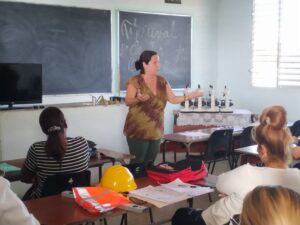In 1977, the prestigious Editorial Siglo XXI published the book El desarrollo del capitalismo en América Latina, by the renowned Ecuadorian sociologist Agustín Cueva (1937-1992), a work of historical interpretation that won the Essay Prize promoted by the same company.
Agustín, with whom I maintained a close friendship, examined, from a theoretical perspective, the pre-capitalist structures as the primary source of underdevelopment in the region; he dealt with the conflictive structuring of the national States and how social struggles manifested themselves; until when the process of original capital accumulation ruled and how the «oligarchic development dependent on capitalism» took shape, the inequalities it generated and the consolidation of the oligarchic States; It continued with the industrial processes and their impact on the overcoming of the oligarchic regime; the post world war economies in the midst of the accumulation of social contradictions; until the 1970s, when capitalist accumulation deepened inequalities, aggravated the concentration and centralization of capital and wealth and, in addition, resorted to open fascism to maintain the new era of capitalist growth, visible in the dictatorships of the Southern Cone, starting with the establishment of the bloody military dictatorship of Augusto Pinochet (1973-1990).
Four and a half decades have passed since the time of those pioneering works on Latin American capitalism, among which Cueva’s was outstanding. Research has grown mainly due to the strengthening of political economy among the social sciences in the region. So we have advanced not only in knowledge, but also in the clarification of past epochs and in the foresight of what determines the historical present. Today it is very clear that the neoliberal model acquired its definitive physiognomy in the 1980s and 1990s. Its consolidation was in the hands of the IMF, transnational capital and, above all, the action of Latin American governments which, under the assumption that neoliberalism was the world alternative after the collapse of Soviet-style socialism, adhered to the «new» ideology, which became the definitive cause of the Latin American bourgeoisies.
The consequences of what could be called the «first neo-liberal cycle in Latin America» are disastrous, whichever way you look at it. The information and statistics prove it, and it is enough to go online to the various documents published, above all, by ECLAC, but also by the IMF, the World Bank, the UNDP or the ILO. And, beyond the «data», there are the experiences of the people, who have been affected by the increase in unemployment, underemployment, the dragging down of labor, social and environmental rights.
Faced with such a picture, it is worth asking whether neoliberalism has brought any «development» to Latin America. Undoubtedly, there was a clear advance and modernization of capitalism. It could even be said that there was «development» within the historical capitalist underdevelopment that continues to characterize the region; but in no case was there development with social welfare and capable of at least alleviating the gap between rich and poor that has made Latin America the most inequitable region in the world.
As a reaction to that first neoliberal cycle came the first cycle of progressive and new left governments, which promoted social economies, whose achievements contrast with those of neoliberalism and also rely, for the necessary «data», on the same type of reports from international organizations, in addition to national studies, in each country.
As in a kind of pendulum reaction, the second neoliberal cycle continued, succeeded by a lukewarm and focused second progressive cycle. But it is the inadequacies and limits of neoliberalism that have provoked the emergence of a new capitalist option: anarcho-capitalist libertarianism, which for the first time in history has triumphed in Argentina with President Javier Milei.
As observed from all over the region, the attempt to build the utopia of the free market and absolute private enterprise, without the State, has acquired an unsuspected speed and the reforms sought through the DNU law (https://t.ly/TB-3D) and the «omnibus» decree (https://t.ly/2pO6a) threaten to sweep away anything that might be an obstacle to the dream of the paradise of private entrepreneurship, a process that has not been attempted in the United States or Japan and worse in Europe, where social economies rule, in spite of the medium neoliberal advances. The imposition of the libertarian utopia has not been ruled out at any cost and, if necessary, with the repression of any social movement, which is shaping a new era of restricted democracy that will use the armed forces and police to serve the «caste» of capitalists, as already happened in Argentina during the military dictatorship 1976-1983.
Returning to Agustín Cueva, Latin America is in a stage of acute confrontation between social classes, oligarchic interests are revived, Americanist strategies are affirmed in alliance with the internal bourgeoisies, the institutions of the State are traumatized and the rights historically conquered by the peoples of the region are on the way to the pillory. This is not development. It is the deepening of historical underdevelopment, which postpones the collective welfare and the possibility of promoting better living and working conditions for the populations.
To top off this accelerated movement of history, in Ecuador the business- neoliberal and right-wing power bloc, constituted since 2017 thanks to the government of Lenín Moreno (2017-2021), has turned the country into the most insecure in Latin America during that government and more deeply in that of Guillermo Lasso (2021-2023), a first and lukewarm «libertarian» essay, which turned out to be a failure. And there is, so far, not a single sign that development with social welfare will be able to take off at all with the transitory government of Daniel Noboa.
The interest has focused on creating free trade zones, public-private alliances, labor reform and the strengthening of repression to try to stop the unstoppable advance of organized crime, a policy that wishes to obtain popular support through the call for a popular consultation, in which, by the way, a question is introduced to revive «casinos, gambling halls, betting houses or businesses dedicated to gambling» (https://t.ly/YU8mr), which are, paradoxically, the vehicles through which irregular money is «laundered», as it is well known in the world.
From the economic perspective, everything points to the continuity of neoliberalism, now more suited to the interests of what has become the most third world bourgeoisie in the region.
Juan J. Paz-y-Miño Cepeda*, Prensa Latina contributor
*Ecuadorian historian and analyst
(Taken from Firmas Selectas)




